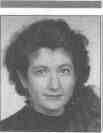The state of the State
When the spring legislative session ended in July, the General Assembly was tagged with a "do-nothing" moniker — with good reason. Although several large-scale proposals had been on the table, from floating casinos in Chicago to a ban on assault weapons, lawmakers accomplished few things of note despite spending 12 days in overtime session in Springfield. There were various theories on why the legislative gridlock was so unyielding. Some said that during an election year, neither Republicans nor Democrats wanted to hand members of the opposing party any victories to tout on the campaign trail. Others opined that the gridlock was only just beginning in a General Assembly composed of a Republican-dominated Senate and a Democrat-controlled House of Representatives. But a bit of reflection reveals the irony in what was and was not accomplished — namely, that political correctness and emotional public interest can spur even a catatonic lawmaking body into action. Consider the "Baby Richard" bill. The state Supreme Court ruled June 16 that Baby Richard should be taken from his adoptive parents, with whom he'd lived for three years, and given to his biological father. This ruling spurred a media outcry, resulting in Gov. Jim Edgar calling the legislature into special session to consider a measure specifically aimed at helping the boy stay with his adoptive parents. Among other things, the measure requires court hearings to consider a child's best interests when natural and adoptive parents are fighting for custody of a child. The speed with which this measure became law was impressive. The court made its decision June 16. The House passed its Baby Richard bill June 30. The governor called a special session on the matter July 1, and the Senate approved it the same day. The governor signed it into law July 3. Pretty fast footwork for a legislature that had been in session since January. Despite the complications of adoption law and parental rights, lawmakers dispensed with procedures such as committee hearings and citizen testimony in their zeal to pass the bill. Contrast this sequence of events with the lackadaisical attitude lawmakers have taken toward other, less provocative issues. Like purchasing reform. The topic itself is not as inspiring as the "Baby Richard" tag, but there was a time when several lawmakers and at least a few citizens — those paying attention, anyway — were shaking their heads in anger and frustration over this issue. For the past two years, newspapers have been rife with tales of connections between people who make political contributions to successful candidates and those who receive no-bid state contracts. The Chicago Tribune and Springfield State Journal-Register each published a series of articles ("Between Friends" and "Cash Transactions," respectively) detailing instances where those who donated money to campaigns were rewarded with lucrative state contracts. The Journal-Register received a prestigious national award for its reporters' efforts. Politicians across the political spectrum, from Secretary of State George Ryan to state Comptroller and Democratic gubernatorial candidate Dawn dark Netsch, submitted recommendations for reforming the system after the stories broke. A bipartisan Blue Ribbon Committee on the State Procurement Code was formed to develop new rules and regulations regarding state contracts. After seven months of meetings, the panel submitted 82 recommendations for change. But two legislative sessions have gone by since the so-called "pinstripe patronage" issue went under the spotlight, and there has been nary a reform to speak of in this area. Various proposals to require competitive bidding on more state con- 8/October 1994/Illinois Issues tracts have been taken up by legislative committees and have even been approved in the individual chambers, but none has ended up on the governor's desk. What message can be gleaned from these two vastly different legislative scenarios — one of which yielded success in little time while the other went nowhere in nearly two years? An optimist might say the general public does have power when people make their voices heard, as in the Baby Richard legislation. In unsuccessfully asking the state Supreme Court to reconsider its Baby Richard decision, Gov. Edgar spoke for many people who were outraged by the idea that an adopted child could be returned to his or her biological parents years later. Another possible message — one not likely to produce glee in people who want to see an activist government — is that the Illinois General Assembly is on a course toward more do-nothingness. Political, geographical, social and economic differences between members and constituencies have balanced out to the point that little will happen except under extreme circumstances, according to this line of thinking. And only in extreme cases such as the one involving Baby Richard will sentiments rise to the point that other philosophical differences fade away. A third possibility, combining elements of the first two, may be closest to reality: Politicians in the Illinois legislature at times will overcome differences to tackle relatively safe issues that have strong public support, emotional appeal and no impact on their political friends and contributors. The so-called Baby Richard law, while perhaps a good idea needed to correct a flawed state policy, in large part was passed and signed so quickly because no political cronies had an adverse interest in the matter. Purchasing reform affects too many insiders and their friends to be guaranteed smooth legislative sailing. It's true that timing played a significant factor in the adoption case. Lawmakers felt they had a better chance of helping Baby Richard the sooner the bill was passed. But that reality shouldn't let them off the hook when it comes to making other needed changes. October 1994/Illinois Issues/9
|
|||||||||||||||

